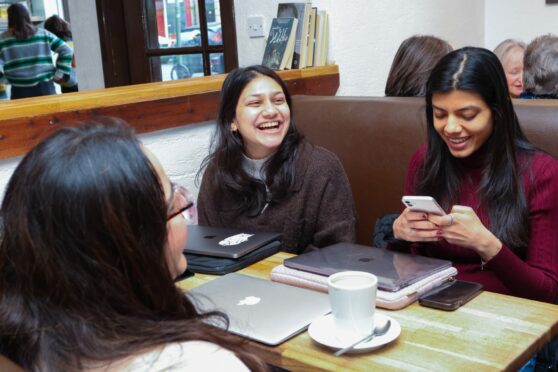
Nicola Sturgeon’s successor has been urged to prioritise young Scots’ recovery from the enduring impact of lockdown.
Former first minister Jack McConnell believes a well-resourced and planned support strategy for children and teenagers must be the first task for whoever wins the SNP leadership contest.
Writing in The Sunday Post today, he says: “It needs all parties to come together and set out a strategy for educational catch up and the social and emotional support that helps these youngsters become the best adults they can possibly be.”
If he was taking charge today, he adds: “I would invite all the party leaders to join me in meeting with education and youth leaders, and agree this strategy by the summer.”
His calls have been echoed by Scotland’s children’s champion, leading paediatricians, psychiatrists, and education experts, warning young people have been disproportionately affected by the cost of living crisis after their lives were “turned upside down” by the pandemic.
Figures published last week revealed a third of youngsters with mental health problems are not being seen within the Scottish Government’s 18-week waiting time target, with more than 7,500 currently on waiting lists.
We told in January how 89% of nursery nurses have seen a rise in the number of young children struggling to talk or understand basic language since the pandemic began.
And research published in October suggested the pandemic has worsened existing socio-economic inequalities.
Dr Mairi Stark, Scotland officer for the Royal College of Paediatrics and Child Health, said: “Paediatrics was not very well supported through the pandemic and mental health issues got worse and worse.
“We can’t address issues early because the waiting times have gone up. We’re seeing more children with issues like anorexia and pressures on the wards and clinics have increased.
“There’s a lot of investment in waiting times for hips and knees, but not so much for the general paediatric clinics and things that aren’t as noticeable and aren’t recorded as much by government.”
Stark also called for the next first minister to increase the Scottish Child Payment, a £25 per week payout to the country’s poorest families with children under 16, in line with inflation.
She said: “Many families are just scraping by, and can’t afford to take their children for swimming lessons or buy football boots for their children to play football.”
Dr Helen Smith, chair of the Child and Adolescent Mental Health Services (Camhs) Faculty at Royal College of Psychiatrists in Scotland, said more youngsters than ever need help with their mental health. She called on the SNP leadership to give firm assurances about how Camhs targets will be met.
Latest figures showed that in the final three months of last year only 70% of children and young people were seen by Camhs within 18 weeks of being referred.
She said: “The new first minister must make sure they give children and young people’s mental health the priority it deserves. As psychiatrists we’ve seen first-hand how demand continues to increase but capacity remains the same. It is a situation that cannot be sustained.
“We need more workforce to keep up with demand and we need it now. This is because it takes several years to train those staff.
“While the pandemic did create more issues for children and young people, we are now living in a cost of living crisis where the most vulnerable households are becoming less well off.”
The main challenge in education for the next first minister is to close the attainment gap in schools, according to education expert Lindsay Paterson.
Nicola Sturgeon described it as the “defining challenge” of her government, but figures show there remains a gulf between rich and poor pupils.
Paterson, professor of education at Edinburgh University, said: “The main immediate impact of Covid on children’s education were the lost opportunities to learn. Despite the best efforts of teachers, learning remotely at home was never as effective as the classroom.
“But the lasting legacy of that impact has been to widen inequalities relating to poverty and wealth. The impact of trying to study at home was always worse for poor families than for wealthy ones, because effective study requires good-quality laptops and internet access.
“After Covid, the opportunity to catch up with what was lost has also been better for children who have good educational equipment at home. So inequality has continued to widen.”
Jack McConnell: The next FM must make protecting our young Scots their first priority
Children’s Commissioner Bruce Adamson said children’s rights need to be at the heart of government decision-making and urged Nicola Sturgeon’s successor to incorporate a United Nations treaty on children’s rights into Scottish law.
The UN Convention on the Rights of the Child (Incorporation) (Scotland) Bill was passed by Holyrood two years ago but the UK Government stepped in and referred the legislation to the UK Supreme Court, which ruled it affected powers reserved to Westminster.
Scottish ministers have said they will bring it back to Holyrood and have been drafting amendments but Adamson said: “This prevarication and delay is unacceptable. On day one in office, the new first minister must bring the Children’s Rights Bill back to parliament and commit to immediate commencement when passed.”
All three SNP leadership candidates told The Sunday Post they were committed to taking the bill forward.
Health secretary and Glasgow Pollok MSP Humza Yousaf said: “This must be part of our framework for Scotland as an international leader in human rights. If first minister, I would move this legislation forward making necessary changes, to bring it into the competence of the Scottish parliament.
“I am committed to social justice and that must include our children. I am also committed to a wellbeing Scotland – as in our 2021 manifesto – where our society values children and helps them thrive. The UN Convention on the Rights of the Child (Scotland) Bill is part of that commitment.”
Finance secretary Kate Forbes said she would also uphold the Scottish Government’s commitment of a 25% increase in investment in mental health by the end of this parliament
The Skye, Lochaber and Badenoch MSP said: “There is no doubt that mental health is one of the most important public health issues facing young people in Scotland today.
“In tandem with increased funding, we need to examine how recruitment and retention in our mental health and education services can be improved.
“If I am elected first minister, I would like to have significant discussions with medical schools and their universities regarding the number of places for Scottish students and the speed at which things can be scaled up.”
More parents asking about neurodiversity after home-schooling
Former community safety minister Ash Regan said she would appoint a youth mental health ambassador and promote mental health education in schools.
The MSP for Edinburgh Eastern said: “Ensuring the wellbeing and development of children and young people in Scotland is of utmost importance.
“We cannot risk losing a generation due to the adverse effects of that on their education and both mental and physical health. Therefore, the Scottish Government must take significant and innovative measures to address this and provide the necessary support to children and young people.”
There is fragility in our minds. It has taken a toll
By Darren McConachie
It’s Thursday lunchtime in Edinburgh and the two cafes facing each other across Nicholson Street are buzzing with the hubbub of students chatting about plans for life and for the weekend.
However, while happily looking to good times ahead in Kilimanjaro and Coffee Angel, many took time to reflect at the strictures of lockdown and the enduring impact on their education and mental health.
Sanyukta Singh, 23, studying education at the University of Edinburgh, believes not enough is being done to help students recover. She said: “I don’t think we will ever get the time back that we lost, as people who were suffering with Covid are still suffering. I just don’t see any hope as of now. The university is trying to solve problems but offering four therapy sessions of 45 minutes doesn’t really help as nobody’s life gets solved that quickly.”
Other students also believe more needs to be done, with some saying lockdown had made them more introverted. Neelakshi Varma feels that the lockdown affected her in different ways.
The PhD student struggled with being away from her family and believes that not enough was done by her university to aid students’ mental health. The 29-year-old said: “I’m a PhD student now but at the time we got a three-month extension but it was not enough for me to accomplish what I had set out to do.
“I’m not sure enough resources are being given towards students’ well-being – currently the wait-list to get counselling is so long and you only get four sessions.”
Law student Stuart Campbell, 23, said: “The government needs to be doing more to help students post-pandemic.
“It almost feels as though they think it’s over and done with and we are all good to just live life again. Ideally, if the Scottish Government should find a way to maybe increase counselling services that would be helpful.
“Covid didn’t affect me personally as badly as people I know. There were some who spent weeks just sitting in their flat even after the lockdown had finished.”
Aimee Buchanan, 22, said: “There is a fragility in the mind of students at the moment, I think, as a lot of our university experience has been mixed with the pandemic.
“I didn’t get to see friends or family. It took a real toll on my mental well-being and I put on some weight too just from eating takeaways.”
Anna Samosudova, from Moscow, is studying social sciences and believes Covid connected the world in a new way.
The 20-year-old said: “Covid brought dramatic changes and was a tremendous challenge for everyone. Everyone had consequences for their actions and it made you feel solidarity. Many things changed and I suffered from Covid. For six months I still felt the effects on my body and mind. We can pretend that nothing ever happened but we all lived through it and we all felt the effect.”
Jill Rodgers believes students must now grasp all experiences they have learned with both hands.
The 26-year-old business student said: “I’m not sure if we’ll ever forget Covid, but we have already started speaking about it in the past. It’s lived history, we can’t forget it.
“The intensity of being inside and studying, the pressure on you to try and get a degree whilst dealing with Covid was difficult.
“I feel like we started living in the moment a bit more, I expect the unexpected now so let’s live in the moment, I’m letting myself think about my masters graduation with a little reservation.”
Disha Mehta had been studying in Edinburgh for a year before Covid halted her education. The 24-year-old said: “I think that it was the uncertainty of not knowing whether we would ever be back.
“The one big difference is that I got used to not socialising and now my social battery has definitely reduced but it’s strange because I still really like in-person connections and having people around to talk to.
“I’m attaching more value to these graduation ceremonies as it is going to be more special considering we never had an undergraduate graduation.”

Enjoy the convenience of having The Sunday Post delivered as a digital ePaper straight to your smartphone, tablet or computer.
Subscribe for only £5.49 a month and enjoy all the benefits of the printed paper as a digital replica.
Subscribe
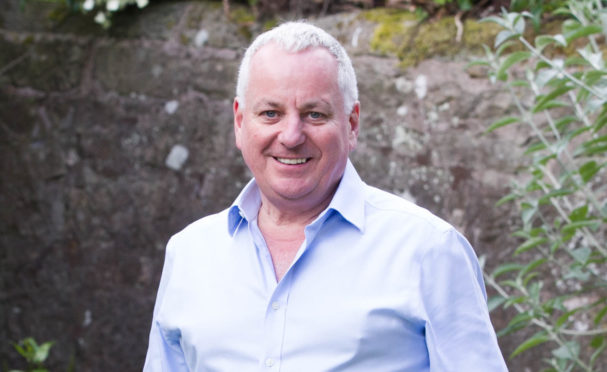
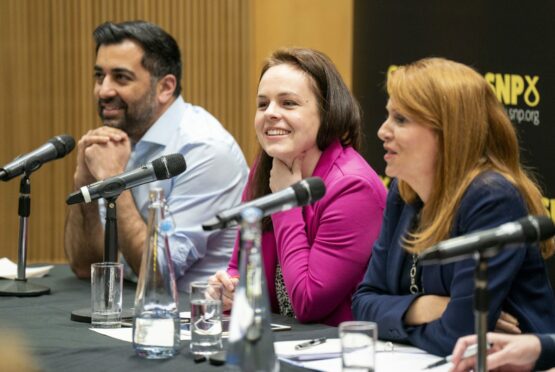
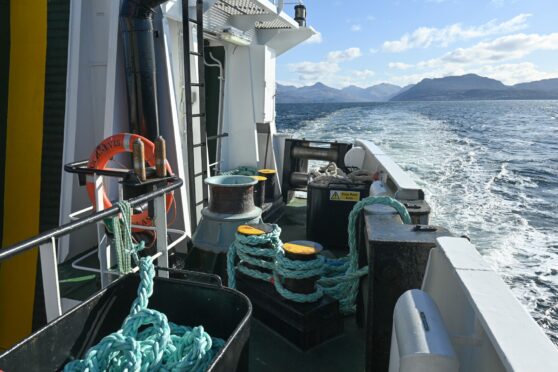

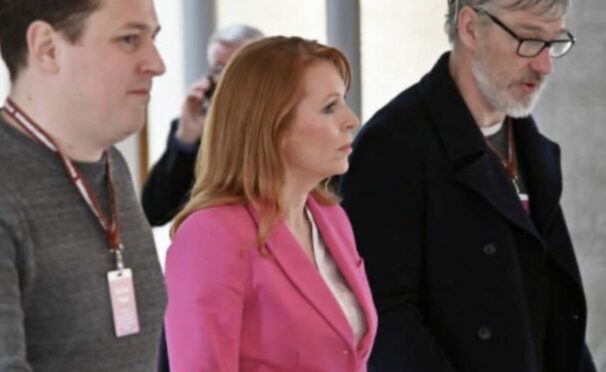
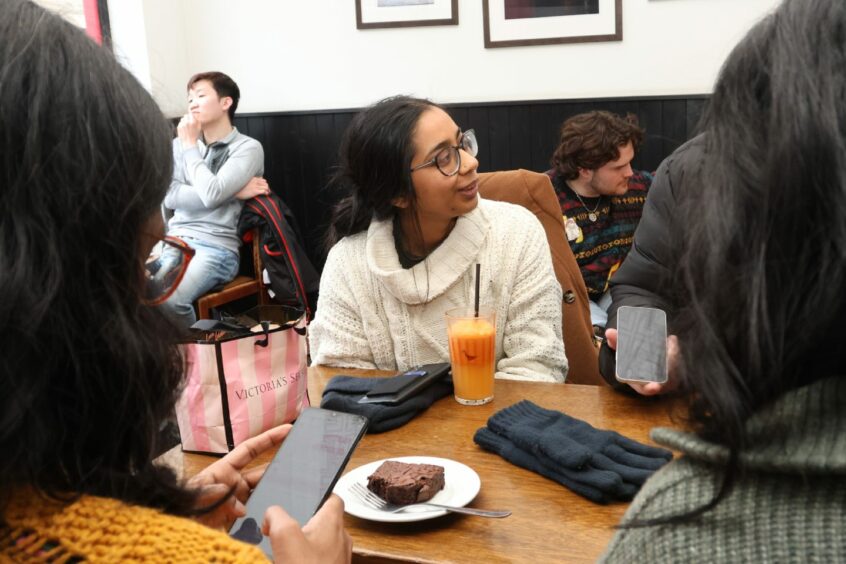 © Scott Louden
© Scott Louden